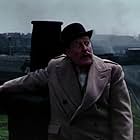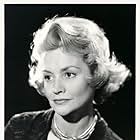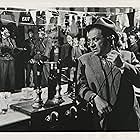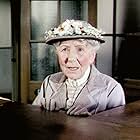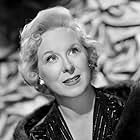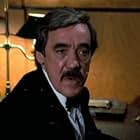Dearden takes a different course from 'The Blue Lamp', in this gentle and modest examination of the probation services. The lead character, the probation officer Phipps (played by Cecil Parker), is a post-Empire man who has left his job in the Colonial Office. The film being made not that long after Britain's withdrawal from India.
Phipps's transition into the role of probation officer is amusing. At first he still wears the traditional civil servant's bowler hat before changing it to a less awkward trilby. His first reaction to the young lad Hooker (Harry Fowler), reveals his upper-class outlook when he says to his colleague Matty (Celia Johnson); 'I've had trouble dealing with difficult people in the colonies you know'. The White Man's Burden is transferred from the Colonial Office on to the new 'unstable' working-class youth of post-war Britain.
Phipps responds sympathetically to a young lad named Hooker whose father died in the war and who lives at home with a cruel stepfather. Phipps goes off to Lewisham to visit Hooker and his narration amusingly comments; 'I always thought of London in terms of Knightsbridge...'. This shows that Phipps is broadening his outlook and awareness of how the 'other half' live.
Hooker is a lad on the verge of delinquency, he is attracted to another problem child, one of Matty's probationary clients, Norma (Joan Collins). Norma is young, petulant and just wants a good time. This 'good time' she wants; drinking; dancing; romance and other immediate sensations, can be provided by the young thug and spiv Jordie (Laurence Harvey). She is shown as torn between the excitement with Jordie that will lead to self-destruction and the patient, cautious relationship with Hooker that may yield a happier future.
This is a conservative film which tries to show the Establishment as becoming more understanding of social problems. However the characters of Jordie and Hooker present two faces of British working-class youth; one evil and malign; the other nice but impressionable and easily misled. The probation office shows the public as a wide range of eccentrics such as alcoholics, prostitutes and wayward youths, which ties in with Ealing's depiction of Britain as a 'community' one with it's real divisions but 'unified' by the imaginary link with the great British nation. The film has a happy ending and was one of Dearden and Relph's early 'social problem' films.








